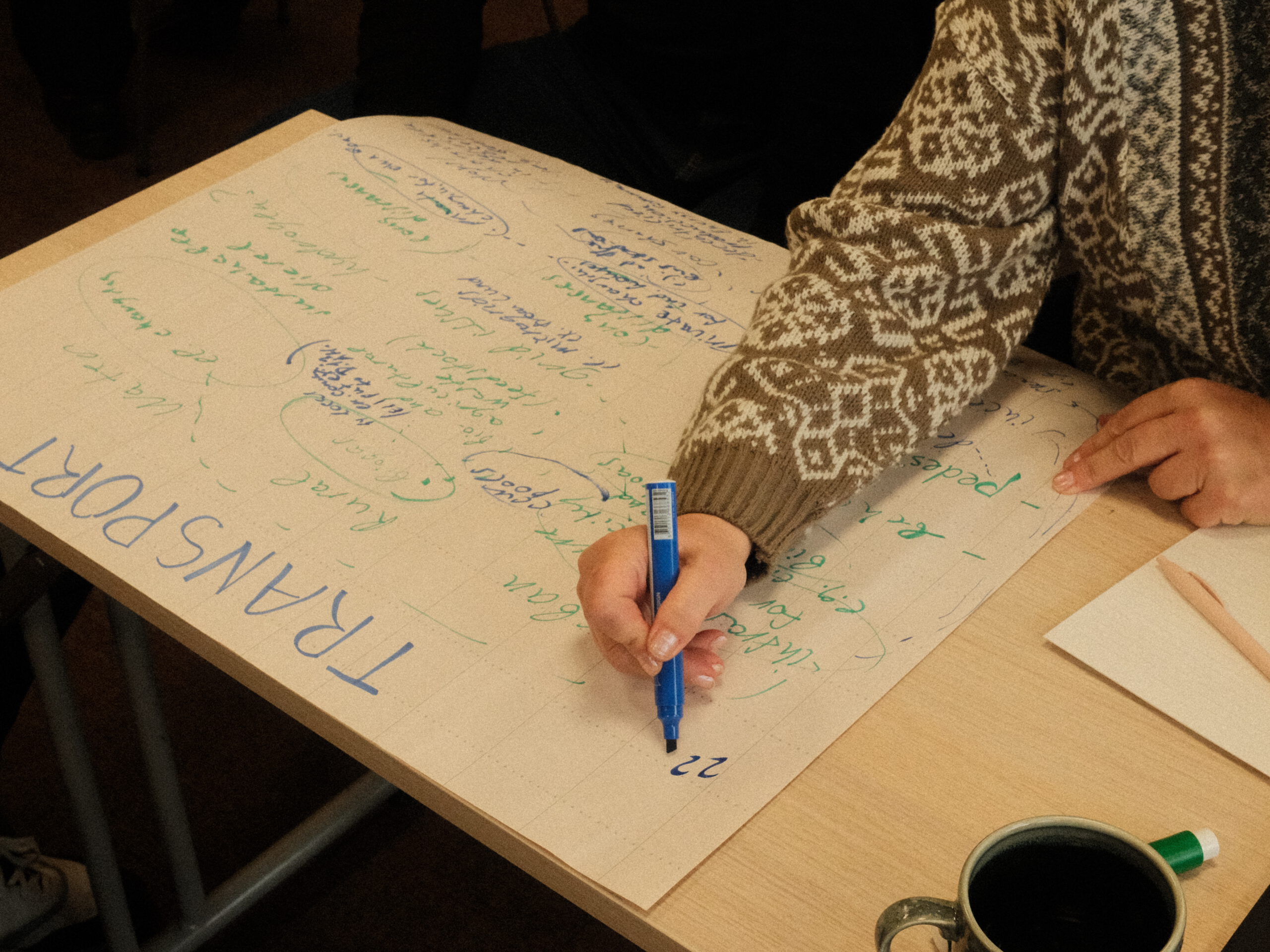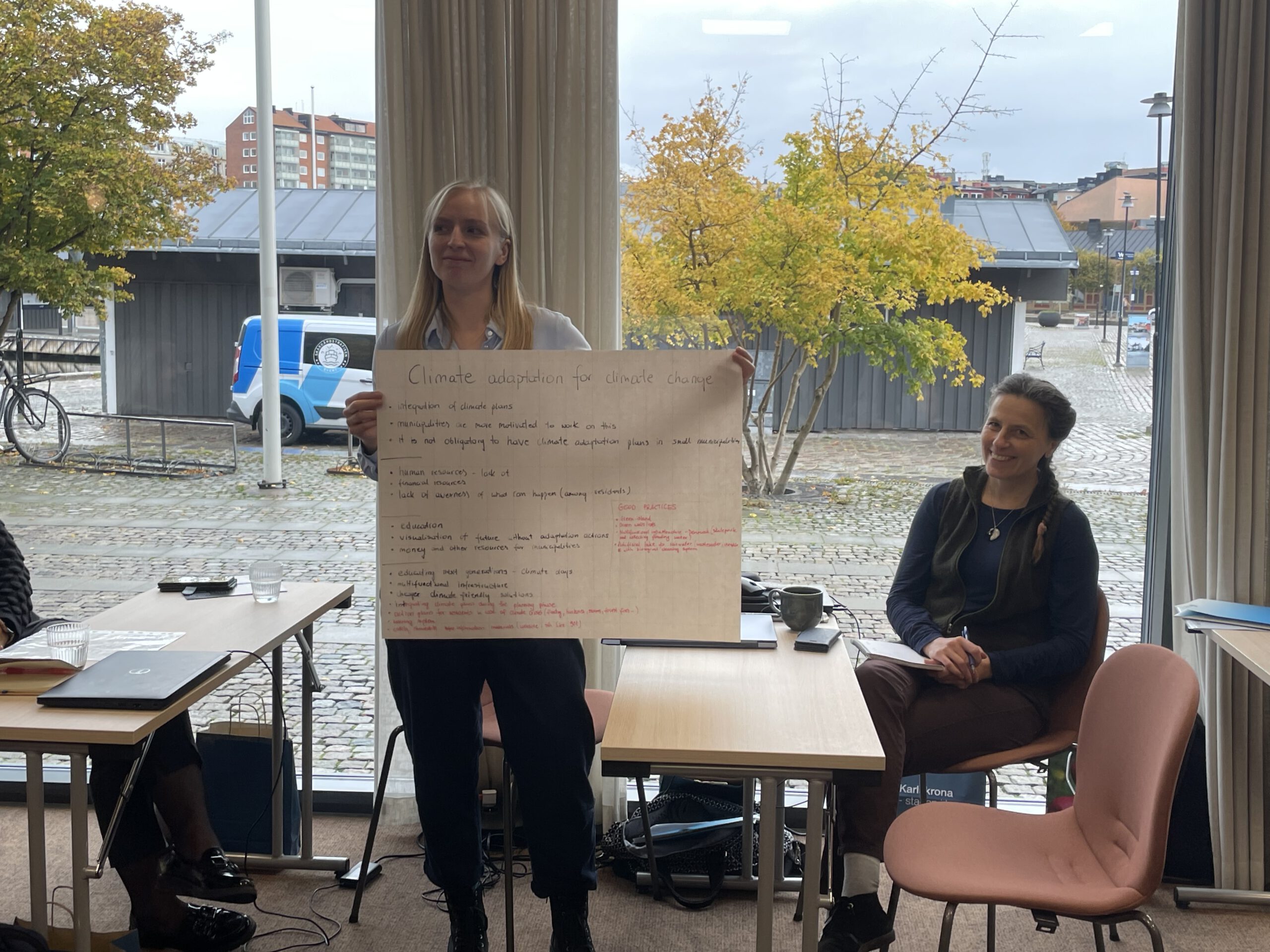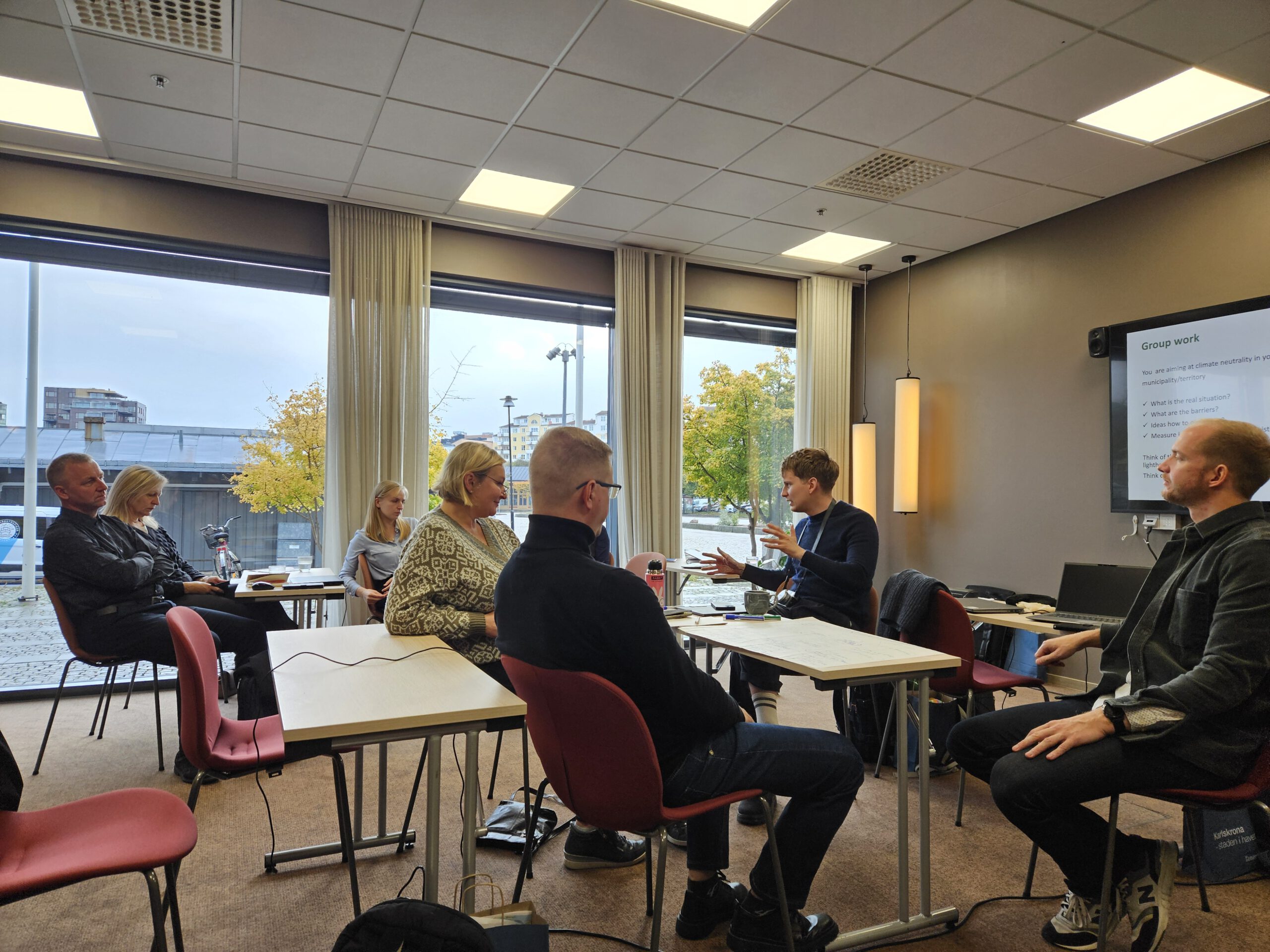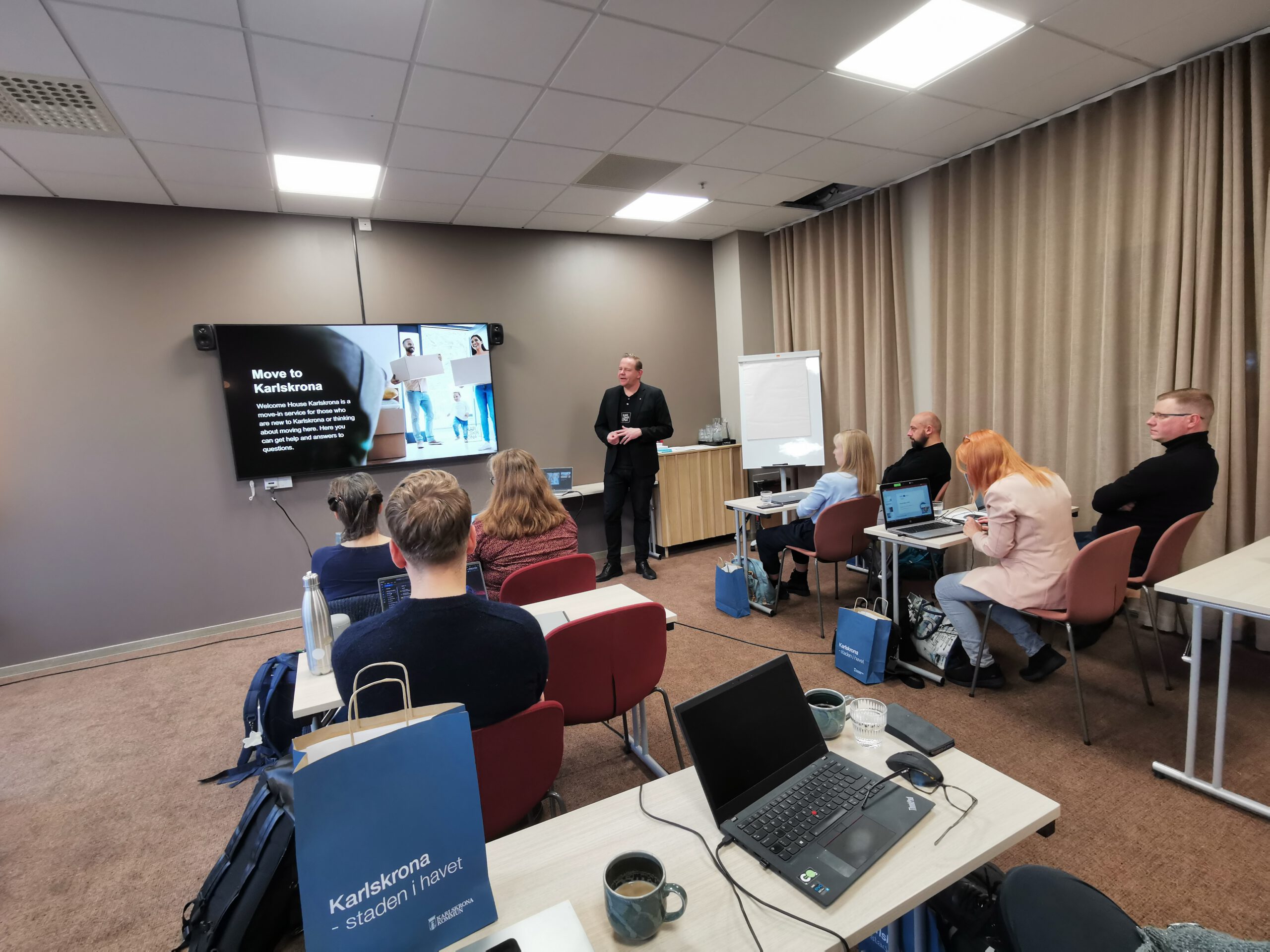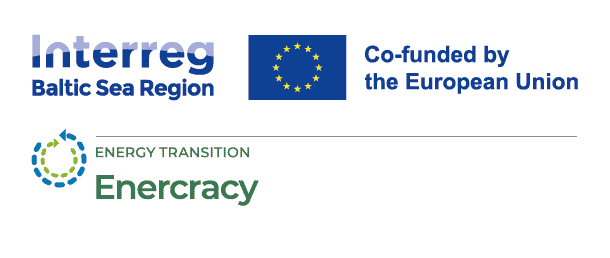
Workshops, Dialogue, and Inspiration in Sweden’s Marine Capital
29 October 2025
Focus on Energy, Transport, and Climate Adaptation
The meeting opened with a warm welcome from Marcus Fredriksson, Economic Development Officer at Karlskrona Municipality, who provided an overview of the city. This was followed by a collaborative workshop where participants worked in groups around three central themes for sustainable development: energy communities, transport, and climate adaptation.
Discussions centred on opportunities and challenges for local energy production, the electrification of transport, and integrating climate adaptation into community planning.
“It’s easier to promote prosumerism than energy communities,” noted Inga Kreicmane, Director of the Zemgale Regional Energy Agency, during the discussion. “We need to identify clear benefits of energy communities together, as regulations change frequently, and it must be easy for private households to manage.”
An interesting topic was the energy transition in boat traffic. Emil Lind, Energy and Climate Advisor from Karlskrona Municipality, explained:
“Unlike cars, people don’t usually keep their boats at home, which means boat owners depend on others to invest in necessary infrastructure, such as charging stations at marinas. This is a challenge we face in our municipality.”
Kirils Gončarovs, Project Manager at Tartu Regional Energy Agency, added:
“It’s important to consider how to create infrastructure, such as parking spaces for bicycles, in desirable places for people”
Opportunities highlighted included increased local resilience, new business models, and social benefits through energy communities. At the same time, challenges such as regulations, financing, and technical complexity were identified. The participants agreed that pilot projects, educational initiatives, and broad collaboration are crucial for taking the next step.
Sharing Knowledge and Building Bridges
A central part of the meeting was dedicated to exchanging experiences and insights from ongoing project work. Inga Kreicmane, Director of the Zemgale Regional Energy Agency, shared progress on developing a Model Catalogue of Measures for energy plans, the role of national work groups, and upcoming webinars for sharing good practices and solutions for climate neutrality.
“It’s wonderful that five countries are working together to complement and inspire each other in developing energy plans,” said Inga Kreicmane.
Evilina Lufti, Project Manager at Green Net Finland, highlighted efforts to engage and include target groups in the development of energy and climate plans, focusing on national work group meetings and planning community engagement events. Aleksandra Hendzel, Project Manager at the Rzeszów Regional Development Agency, provided an overview of communication and outreach, covering strategies for dissemination, methods for evaluating impact, and tools for effective collaboration. Together, these presentations illustrated the breadth of collaboration and learning within the project.
Strengthening Dialogue and Teamwork with Nonviolent Communication
After lunch, the group explored Nonviolent Communication (NVC), a tool for creating open and constructive dialogue. By practising how to distinguish observation from evaluation, express feelings and needs, and formulate clear requests, participants gained new insights into strengthening collaboration and preventing conflicts. The NVC methodology is based on fostering understanding and empathy, which are essential in international project consortia.
From Naval Base to World Heritage: Insights from Karlskrona
The day concluded with a guided walk through historic Karlskrona—a city with a fascinating history, especially within the naval military sector. Did you know that Karlskrona was once considered Sweden’s capital? During the walk, participants learned about the city’s World Heritage status and its significance for Swedish defence history, providing further perspective on the location’s role in innovation and collaboration.
On the second day, participants enjoyed an inspiring study visit in the Karlskrona region, which you can read more about in our next article.
